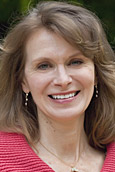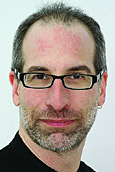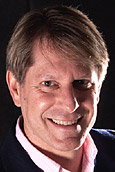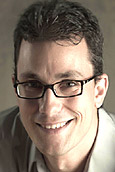Teaching excellence, scholarship and creative activity earned four members of the Lawrence University recognition Sunday, June 5 at the college’s 162nd commencement.
Eilene Hoft-March, professor of French and Milwaukee-Downer College and College Endowment Association Professor, was recognized with Lawrence’s Award for Excellence in Teaching in absentia. The award honors outstanding performance in the teaching process, including the quest to ensure students reach their full development as individuals, human beings and future leaders of society.

A member of the faculty since 1988, Hoft-March previously was recognized with the college’s Young Teacher Award in 1991 and the Freshman Studies Teaching Award in 1997. She is one of only three faculty members to earn those three teaching awards.
Hoft-March is a scholar of 20th-century French literature and autobiographies. Her scholarship also includes literature about children and the Holocaust. In addition to French language and French literature, she teaches courses in gender studies and has been a leader in the Freshman Studies program.
She has directed Lawrence’s Francophone Seminar in Dakar, Senegal and served as a faculty advisor to students in the Posse Program, an initiative that brings high-achieving high school students with exceptional leadership skills from New York City public high schools to Lawrence.
In announcing the award, Lawrence President Jill Beck reminded the audience the awards are a secret and Hoft-March was unable to attend the ceremonies.
Hoft-March earned a bachelor of arts degree in French and English at Carroll University and her master’s and doctoral degrees in French at the University of California-Berkeley.

Peter Glick, professor of psychology and Henry Merritt Wriston Professor of the Social Sciences, received the Award for Excellence in Scholarship, which honors a faculty member who has demonstrated sustained scholarly excellence for a number of years and whose work exemplifies the ideals of the teacher-scholar.
A social psychologist, Glick studies both the subtle and the overt ways in which prejudices and stereotypes foster social inequality. Along with Susan T. Fiske of Princeton University, Glick introduced the concept of “ambivalent sexism,” which asserts that not just hostile, but subjectively benevolent — though patronizing and traditional — views of women as pure, but fragile, reinforce gender inequality.
Most recently, Glick served as co-editor of the book “Handbook of Prejudice, Stereotyping, and Discrimination” and a special issue on ambivalent sexism published in the journal Sex Roles. His research was recognized by the Harvard Business Review on its list of “Breakthrough Ideas for 2009.” That same year he was elected president of the Society of Experimental Social Psychology.
“Your theoretical and empirical analyses of the difficult, stubborn problem of ambivalent sexism have caught the interest of a large segment of the academic community, and have been cited literally thousands of times,” Beck said in presenting Glick his award. “Your research combines well-defined empirical studies, careful analysis and clear, insightful writing. Sexism is clearly an issue of great contemporary concern, and your insights into its origins represent an important example of how well conducted academic scholarship can address meaningful social issues.”
A member of the faculty since 1985, Glick earned his bachelor’s degree in psychology from Oberlin College and his Ph.D. in social psychology from the University of Minnesota.
Phillip Swan, associate professor of music and associate director of choral studies, received the Award for Excellence in Creative Activity. Established in 2006, the award recognizes outstanding creative work for advancing Lawrence’s mission.

Swan joined Lawrence’s conservatory of music faculty in 2002 as director of Cantala, the college’s women’s choir. Under his direction, Cantala has established a reputation for its outstanding vocal production and mastery in the art of creating an artistic choral sound. In addition to his work with Cantala, Swan is the musical director for Lawrence musical productions and serves as co-conductor of the White Heron Chorale, a semi-professional community ensemble.
Earlier this year, Cantala, which is comprised of freshmen and sophomores, received the highest honor in the field of choral ensembles — an invitation to perform at the prestigious American Choir Directors’ Association national conference in Chicago. Cantala was selected from more than 400 entries worldwide and was the only women’s collegiate choir so honored.
“Part master musician, part inspirational director, and yes, part psychologist, you transformed your young choir from wide-eyed recruits in September to a world-class vocal ensemble in March,” said Provost David Burrows in honoring Swan. “Cantala performed flawlessly at the ACDA convention and received standing ovations from the choir world’s most discriminating audience — 2,000 choir directors. This accomplishment is clearly the result of the inspired, creative and brilliant work you do with our students.”
Swan earned a bachelor’s degree in music education from Concordia College, a master’s degree in choral conducting from the University of Texas-El Paso and has completed all coursework for the DMA in choral conducting at the University of Miami (Fla.).

Scott Corry, assistant professor of mathematics, received the Young Teacher Award in recognition of demonstrated excellence in the classroom and the promise of continued growth.
Since joining the faculty in 2007, Corry has taught courses in calculus, linear algebra and number theory, among others, as well as Freshman Studies.
In presenting his award, Burrows praised Corry for “a passion for mathematics that leads to your great success.”
“Rather than fill your students with formulas and proofs, you focus on the process of mathematics,” said Burrows. “In the finest traditions of liberal learning, you free the minds of your students to think and not merely to memorize. You introduce them to a world where they can stand in awe of the power and beauty of mathematics. Your students admire your quiet but firm insistence on rigorous standards, your deep knowledge and your well-organized, understandable class presentations.”
Corry earned a bachelor’s degree in mathematics from Reed College and a Ph.D. in mathematics from the University of Pennsylvania.